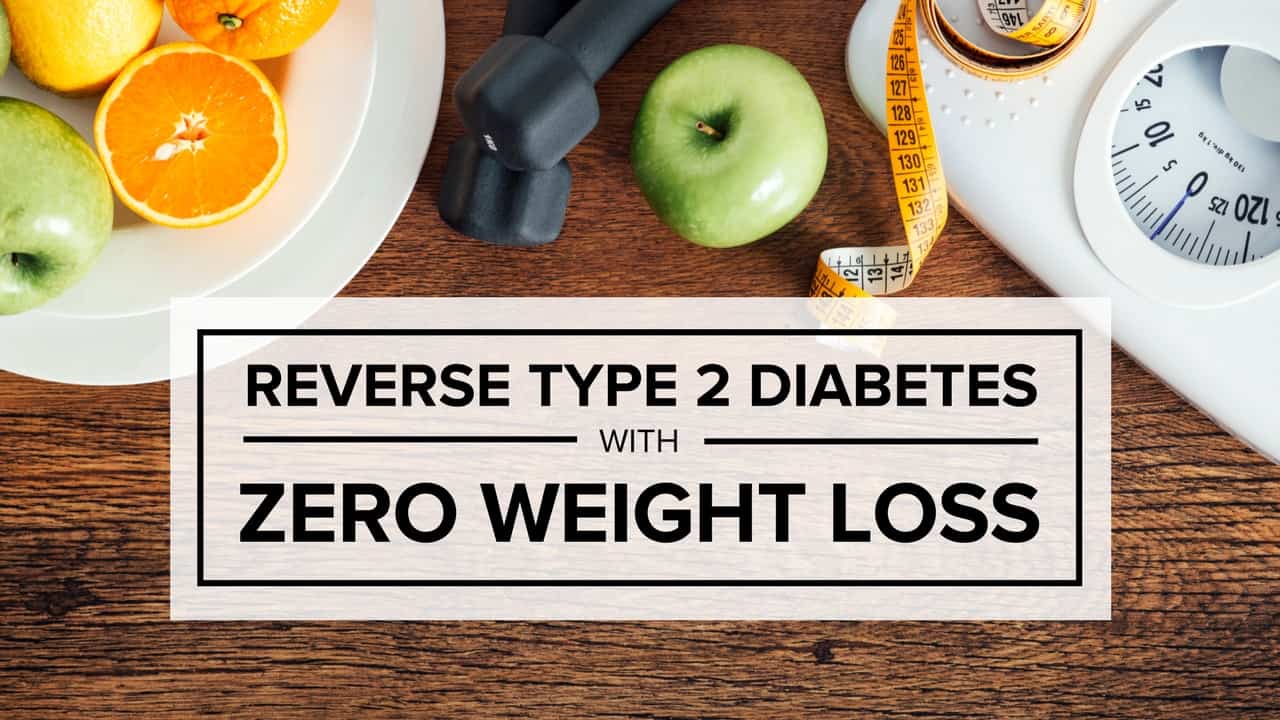
Since the 1970’s when the Atkins diet first gained popularity, carbohydrates have been thrown under the bus and blamed for a host of metabolic disorders including diabetes, obesity, heart disease, cancer and insulin resistance.
This anti-carbohydrate literature will lead you to believe that carbohydrates cause total-body inflammation, setting the stage for a host of complex metabolic disorders that can only be solved by eliminating carbohydrates from your diet.
In this article you will learn exactly how to reverse type 2 diabetes in a matter of weeks following a highly "unconventional" approach.
It’s easy to believe these claims, because they are always backed up by scientific research and communicated using fancy words that are very convincing.
Because of this, low carbohydrate diets have taken the world by storm, resulting in millions of people who actively avoid eating any form of carbohydrate, whether from refined sources like bread, cereal, pasta, rice and artificial sweeteners, or from whole sources like fruits and starchy vegetables.
As a society, we have come to fear carbohydrates.
The words “low carb” and “no carb” are printed on labels, boxes and packages, feeding the anti-carbohydrate frenzy and strengthening the stance against this alleged dietary criminal.
Visit your nearby bookstore and you’ll find entire books written on the subject of carbohydrates, with authors making wild claims that “there is no biological need for carbohydrates in your diet,” arguing that our Paleolithic ancestors subsisted for thousands of years on diets low in carbohydrate energy or completely devoid of carbohydrate altogether.
Is any of this true? Are carbohydrates the cause of our generation’s ailing health? Is it possible to reverse type 2 diabetes eating carbohydrate-rich foods at all?
Scientists Reverse Diabetes Using a Diet High in…Sugar
As early as 1930, physicians at the Montreal General Hospital discovered that diets high in fat have detrimental effects on insulin sensitivity (1–4). In one of the first research papers published on the subject of high fat diets and diabetes written in 1935, Dr. Rabinowitch M.D. wrote:
"Suffice it to say that it now appears to be fairly well established that carbohydrates improve, whereas fats impair, carbohydrate tolerance; and that carbohydrates increase, whereas fats decrease, the sensitivity of the individual, animal and man, to insulin" (1).
Only twenty years later in the 1950’s, Dr. Walter Kempner at Duke University did something incredibly daring.
Dr. Kempner demonstrated that high fat diets not only caused insulin resistance and type 2 diabetes, but that patients could begin to reverse type 2 diabetes in a matter of days by eating a diet containing nothing but rice and fruit, two foods that present day diabetes nutrition condemn almost entirely.
Dr. Kempner was the first to show the world that a diet composed entirely of extremely low fat foods – rice and fruit – could not only reverse type 2 diabetes, but also reverse hypertension, kidney disease and diabetic retinopathy, provided that the amount of fat in the diet was kept extremely low (5).
Take a moment and think about this carefully.
Conventional diabetes wisdom states that foods high in carbohydrate energy will exacerbate diabetes and increase your requirement for insulin and medication.
This is the cornerstone of the Atkins diet, the South Beach diet, the Zone diet and the paleo revolution. Central to each of these diets is a reduction in carbohydrate intake, for the explicit purpose of reducing the need for insulin, which in turn reduces the severity of diabetes and leads to significant weight loss.
So by this low-carbohydrate rationale, Dr. Kempner’s rice-fruit diet should have resulted in metabolic disaster for his patients living with type 2 diabetes. The rice-fruit diet should have increased his patient's insulin requirements, caused unwanted weight gain, and exacerbated cardiovascular disease.
Fortunately, Dr. Kempner was one of the first physicians to prove that carbohydrates are not the enemy. His work demonstrated the exact opposite of the low-carb philosophy; a diet high in carbohydrates drastically reduces insulin requirements, as long as the total fat content remains low.
Can You Reverse Type 2 Diabetes Without Weight Loss?
Given that the diets designed by Rabinowitch and Kempner were both low-fat and low-calorie diets, many questioned whether improvements in insulin sensitivity and diabetes were simply due to weight loss, and not to decreased dietary fat.
To separate these two variables, researchers in 1979 enrolled twenty subjects who had been living with type 2 diabetes for more than 20 years.
They fed them a low-fat, plant-based diet and monitored the changes in their insulin requirements and blood glucose over time. In this study the design was somewhat different.
Instead of feeding participants a low-fat and low-calorie diet to reverse diabetes, they practically force fed subjects a low-fat diet and prevented them from losing weight.
Some subjects complained of physical discomfort from eating so much food, but their protocol ensured that all subjects remained weight stable. By doing this, they could then study how insulin requirements changed on a low-fat diet, independent of weight loss.
Result #1: No More Insulin
Insulin requirements plummeted by an average of 58% in the group that ate a low-fat diet, whereas insulin requirements did not change in those eating the conventional diabetes diet.
Ten out the twenty subjects were able to discontinue insulin altogether, and those who continued insulin therapy were able to reduce their dosages between 7-98%.
Result #2: Incredibly Fast Results
The most surprising result was that more than 50% of subjects were able to discontinue insulin and begin to reverse type 2 diabetes after only 16 days on a low-fat diet, having lived with diabetes for multiple years.
Think about how remarkable this is: after slightly more than 2 weeks on a low-fat diet, many subjects were able to discontinue insulin without losing weight.
Result #3: Significantly Reduced Cholesterol
A convenient side effect of a reduced intake of dietary fat was that cholesterol levels dropped an average of 29% – from 206 mg/dL to 145 mg/dL.
Most importantly, all patients in this study were able to reduce or discontinue insulin therapy and reduce their cholesterol levels without any changes in body weight, clearly demonstrating that less dietary fat results in less insulin (6,7).
Since that time, researchers have found that amla (Indian gooseberries) are the most powerful cholesterol-reducing food on the planet.
Watch this video from NutritionFacts.org to learn more:
Take Home Messages
- Carbohydrates are NOT the enemy!
- You can reverse diabetes eating nothing but fruit and rice
- You don’t need to lose a single pound in order to reverse diabetes. All that is necessary is a low-fat, plant-based, whole-food diet.
- You can eat large quantities of fruit and reverse type 2 diabetes very easily.
Lower Your A1c and Get to Your Ideal Body Weight ... Guaranteed

Your results are guaranteed. Join more than 10,000 ecstatic members today
Personalized coaching puts you in immediate control of your diabetes health, helps you gain energy, improves your quality of life, and reduces or eliminates your meds.
Enter to Win Free Coaching
Share this article on social media and leave a comment below, and you will be entered in a drawing to win 6 FREE MONTHS of coaching ($174 value)!

